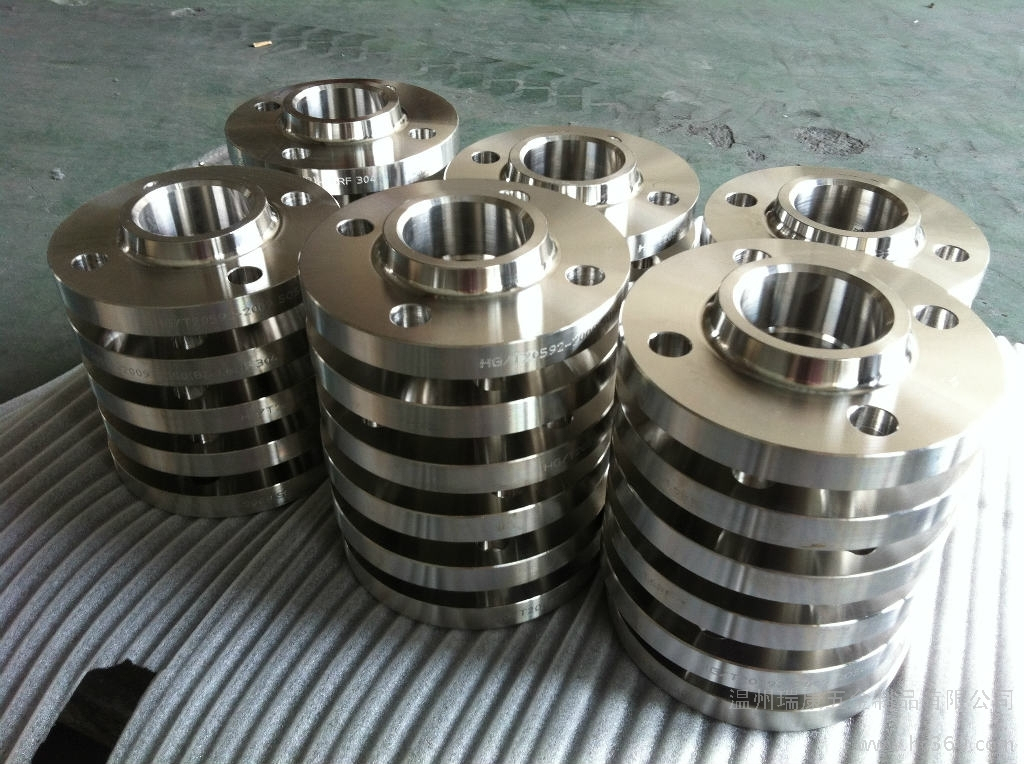Stainless steel flanges are used in a wide range of industrial applications. These are essentially fittings used to connect pipes, valves, pumps, and other equipment in the proper way so that fluids and gases do not create unnecessary pressure and for easy inspection, cleaning, or modification. Of the many grades of stainless steel flanges, stainless steel 304 flanges have dominated because they are versatile in use, possess durability, and hence save costs. What are stainless steel flanges? This blog will analyze the key advantages of stainless steel flanges, especially those made from stainless steel 304, and why they are widely used in industrial sectors.
Flanges are a form of mechanical connector that connects two piping system parts. They provide a solid leak-proof connection between pipes, fittings, and equipment. Stainless steel flanges are made from high-quality stainless steel, and come in several varieties, such as slip-on, weld neck, blind, and threaded flanges.
Stainless 304 flanges constitute 304-grade stainless steel, which is among the most popular alloys because of its non-corroding characteristics and high strength. Formability is the other attribute that has led to greater usage in a variety of industries where the service conditions demand corrosion resistance.
Some of the main advantages of Stainless Steel 304 Flanges
Resistance to Corrosion
Another significant advantage of using stainless steel 304 flanges is excellent resistance to corrosion. For example, grade 304 stainless steel is high in percentage chromium content that provides a surface layer of chromium oxide to protect the flange from rust and oxidation. Thus, stainless steel 304 flanges are apt to be applied in industries such as chemical processing, oil and gas, and marine environments where corrosion exposure is high.
High Strength and Toughness
Stainless steel flanges are known for their high strength and strength in such a way that 304-grade steel is strong enough to withstand very high pressures and huge temperatures. These can be easily used in industrial projects where the equipment is exposed to stressful conditions. The long-term stability and performance of stainless steel 304 flanges tend to be less necessary for replacement or repair.
Versatility
The stainless steel 304 flanges are widely used flanges and are found in food and beverage, pharmaceutical, petrochemical, water-treatment industries. Due to the non-reactive characteristic, they can be used when hygiene and cleanliness is a concern which is mainly found in food processing. Their resistance to high and low temperatures makes them an all-around choice for the industrial environment.
Maintenance Ease
Unlike other metals, stainless steel 304 flanges involve very low maintenance. As there is resistance in the material from corrosion, the chances of any kind of pitting or rusting, as well as deterioration of the surface, are minimized, and accordingly, the flanges will stay in a serviceable position for an extended period. This ease of maintenance leads to reduced operational costs, and stainless steel flanges are thus economical for industrial systems.
High Weldability and Fabrication
Stainless steel 304 flanges possess exceptional weldability that makes them easily fabbed and installed in a piping system. This is important in most industries, and more especially where customization of fittings and joints is common. Installation becomes easier as it offers more reliability since welding will not have it lose its strength or find resistance against corrosion.
Appearance
In addition to offering functional benefits, stainless steel 304 flanges also offer an aesthetic sense. The smooth, brushed finish of stainless steel makes piping systems visually more attractive and is used where aesthetics are more important, such as in architectural applications or high-end commercial kitchens.
Applications of Stainless Steel 304 Flanges
The extraordinary properties of stainless steel 304 flanges position them as ideal for use in several varied industries. Some of the prominent applications of stainless steel 304 flanges include the following:
Chemical and Petrochemical Industry: They are highly essential for handling corrosive chemicals and fluids and ensuring leak-free connections in pipelines.
Food and Beverage Industry: Stainless steel 304 flanges, being non-reactive, find excellent applications for food-grade work and thereby preventing contamination, ensures hygiene conditions.
Water Treatment Plants: These stainless steel flanges are strong and resistant to rust in systems exposed to water, chlorine, or corrosive materials.
Oil and Gas Industry: Theflanges have widespread usage in extreme environmental conditions, such as pipelines and equipment offshore drilling rigs, wherein corrosion exposure has to be avoided.
Pharmaceutical Industry: The pharmaceutical manufacturing process demands stainless steel 304 flanges due to its chemical corrosion resistance and cleanliness.
Conclusion
Stainless steel 304 flanges take the best characteristics of corrosion resistance, strength, versatility, and easy maintenance to serve as a critical part of several industries. Being extremely resistant to severe environments, with excellent weldability and visual appeal, these flanges ensure that they are practical and durable enough in the long term. Stainless steel 304 flanges provide the reliability and performance you need whether you are working on chemicals, food, or within the oil and gas industries.
By choosing the stainless steel 304 flanges, the industries can achieve even better performance, lower downtime, and reduced maintenance costs; therefore, they are one of the effective long-term investments.
For more visit on this website : https://technonetwork.co.in/



